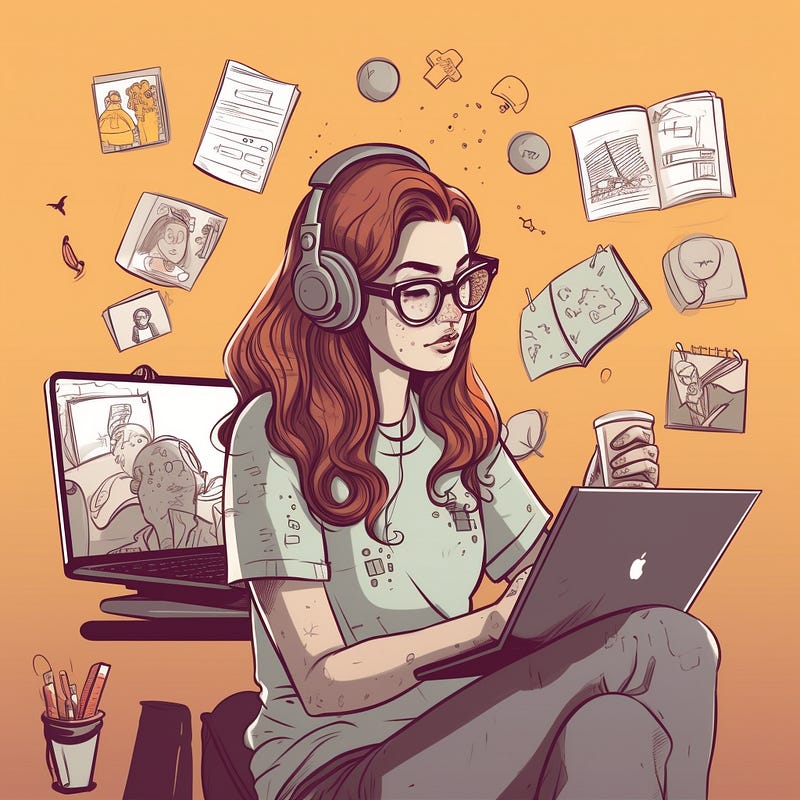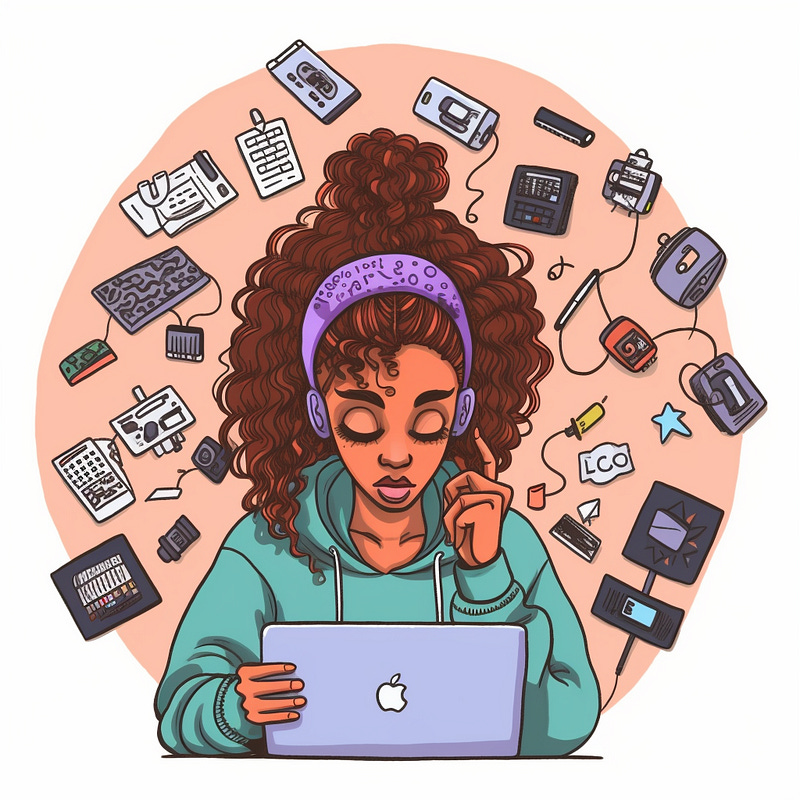Using Technology to Improve Mental Health
We really shouldn’t be afraid of embracing technology when it comes to helping our mental health clients.
We really shouldn’t be afraid of embracing technology when it comes to helping our mental health clients.

Technology has brought about a significant revolution in our lives and the way we work. In recent years, mental health support has also greatly benefited from advancements in various tech fields like artificial intelligence and virtual reality.
In this article I’ll show seven ways in which technology is being harnessed to enhance mental health assistance.
1. Teletherapy
Teletherapy, also referred to as online therapy or e-therapy, enables individuals to receive counseling and therapy services remotely. This groundbreaking approach eliminates geographical limitations, ensuring enhanced accessibility to mental health professionals. Through video chats, individuals have the opportunity to connect with therapists, expanding the convenience and flexibility of mental health support.
I do all of my counseling online as I live in a country where English isn’t the main language. I also work in a ‘normal’ job as a writer so it means I don’t have to pay additional rent on a premises and nobody has to travel to meet me. It’s a great way to do therapy.

2. Self-management
Mobile apps and web-based programs have revolutionized the way individuals manage their mental health conditions. These platforms offer a wide range of resources, tools, and techniques that empower users to take charge of their well-being and effectively handle their symptoms. From mood trackers for monitoring emotions to meditation guides for relaxation, these apps provide personalized support and encourage self-care practices.
I ask many of my clients to use such apps so they can keep track of their moods throughout the day. Coupling this with daily journaling allows people to really come to grips with the issues they’re facing.
3. Improve Thinking Skills
Cognitive training programs utilize technology to enhance thinking skills in individuals facing cognitive decline or mental health challenges. These programs employ brain exercises, puzzles, and games strategically designed to boost memory, attention, and problem-solving abilities.
4. Skill Training
Technology provides individuals with mental health conditions the opportunity for immersive and interactive skill training. Through virtual reality (VR) simulations, real-life scenarios can be recreated, allowing users to safely practice coping strategies and develop essential skills. For instance, VR exposure therapy gradually exposes individuals with anxiety disorders to feared situations, aiding them in building resilience and overcoming their fears.
I’ve seen how beneficial VR can be in helping people with phobias, in particular acrophobia, aerophobia, enochlophobia and fear of public speaking (glossophobia).
5. Illness Management and Supported Care
Digital platforms and wearable devices are revolutionizing the management and support of mental illnesses. These advanced technologies facilitate real-time symptom monitoring and provide immediate feedback to individuals and healthcare providers alike.
By collecting and analyzing data, medical professionals can develop personalized treatment plans and take proactive interventions, resulting in improved outcomes for individuals facing mental health conditions.

6. Passive Symptom Tracking
Passive symptom tracking involves continuously monitoring an individual’s behaviors, such as sleep patterns, physical activity levels, and social interactions. Wearable devices equipped with sensors gather this data for analysis. The purpose is to identify potential triggers or warning signs of mental health issues. By leveraging this information, individuals and their healthcare providers can gain valuable insights and take proactive measures to prevent such issues from manifesting.
7. Data Collection
The integration of technology in mental health care has completely transformed how data is collected and analyzed. By leveraging electronic health records, artificial intelligence algorithms, and predictive modeling, a vast amount of information can be efficiently processed.
This breakthrough enables researchers and mental health professionals to delve deeper into understanding mental health conditions, develop more precise interventions, and enhance overall treatment outcomes.
Hi, I’m Paddy. Thanks for reading my article. I’m a counselor, coach and meditation teacher.
If you’d like to contact me regarding a counseling session or about writing, you can contact me here. My different social media channels are here.



